#the sandman book of dreams
Text
Look what I found at work today! ✨
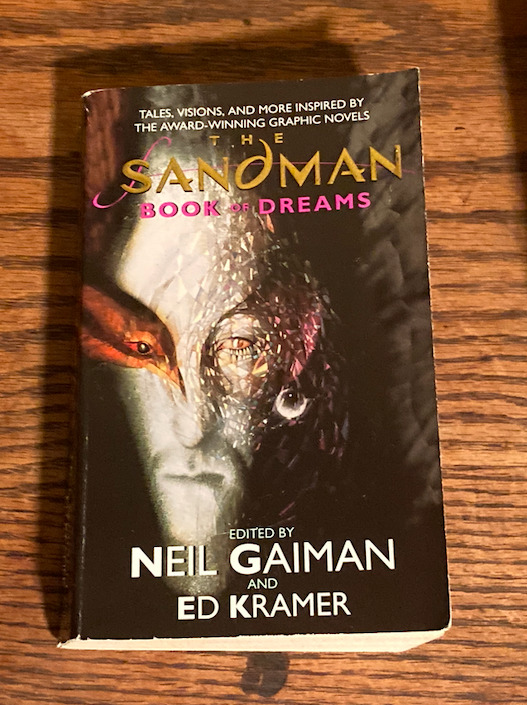
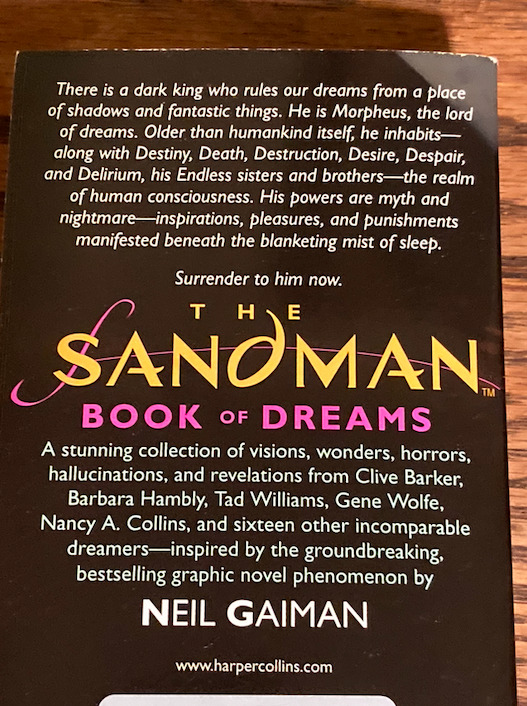
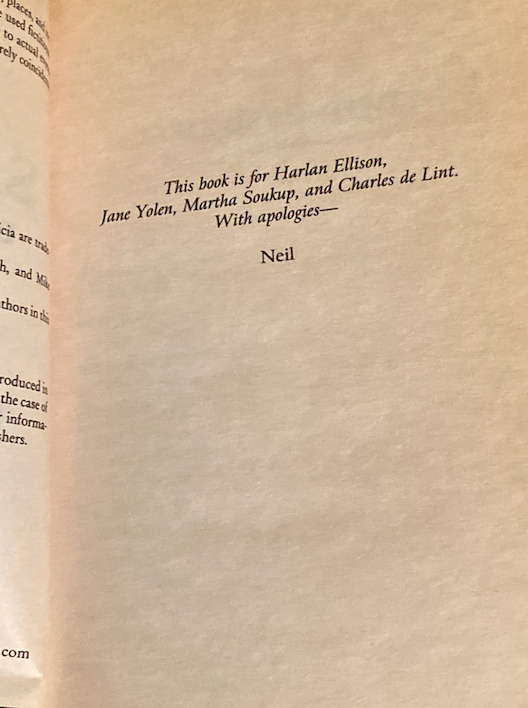
Seems to be a collection of Sandman fanfiction short stories written by a bunch of well-known & up-and-coming authors at the time. I'm always fond of reading sci fi short story collections, so finding one based around one of my special interests right now was a real treat :D
4 notes
·
View notes
Text

Neil Gaiman, “The Sandman”
7K notes
·
View notes
Text

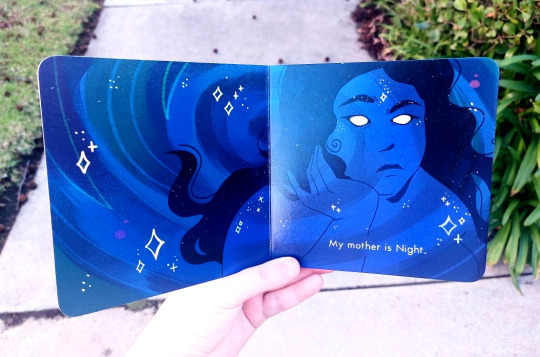
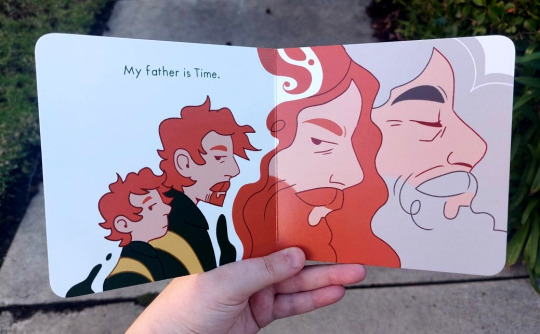
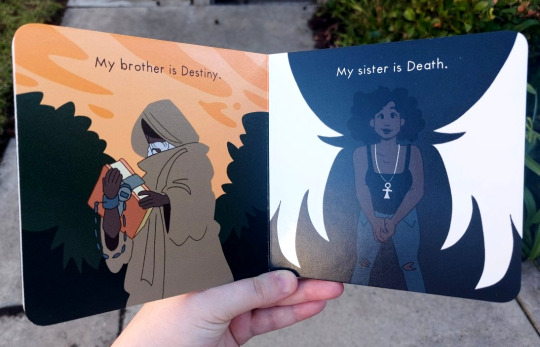
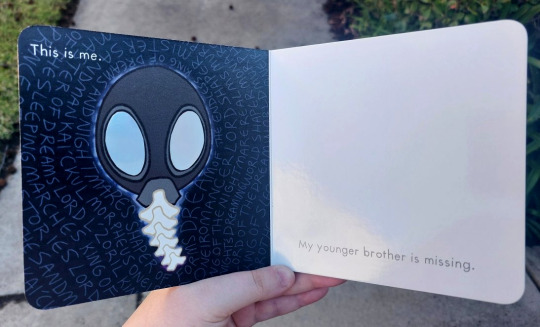
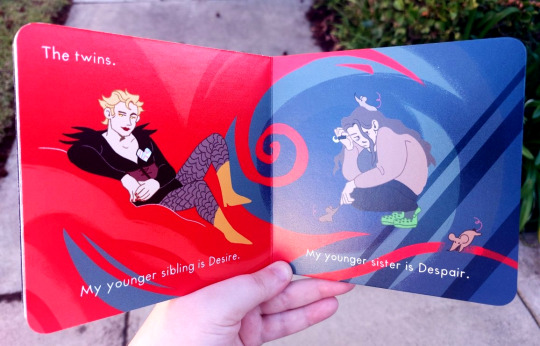
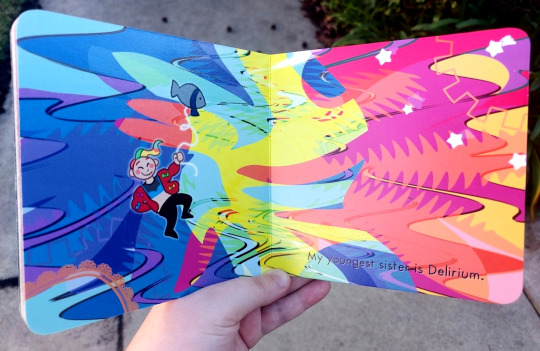

i'm excited to show dream's board book for To Be Brand New by @dsudis for @the-centennial-husbands-bigbang (dream's helm lenses are made with reflective paper! so irl you can look at yourself on the page)
link to the high rez illustrations
#my art#fishfingersandscarves#the sandman#the sandman netflix#big band#the centennial husbands big bang#dreamling#fic rec#illustration#book cover#printing#dream of the endless#dream (the sandman)#dsudis#desire of the endless#death of the endless#despair of the endless#delirium of the endless#destruction of the endless#night (the sandman)#time (the sandman)#destiny of the endless#destiny (the sandman)#death (the sandman)#delirium (the sandman)#desire (the sandman)#despair (the sandman)#destruction (the sandman)
521 notes
·
View notes
Text
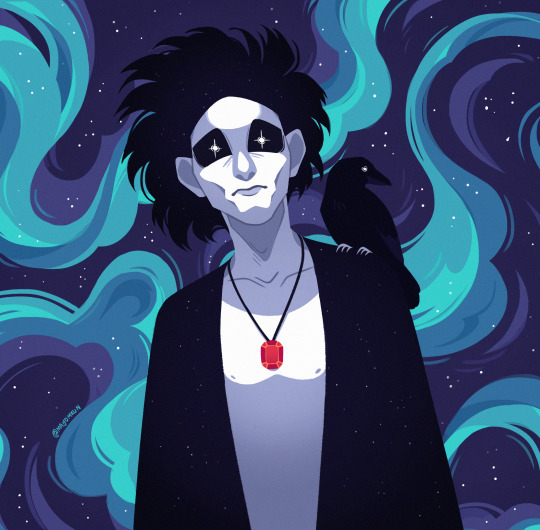
Shaper of Form
#my art#the sandman#dream of the endless#half way through book 2 now let's gooo#how is dream even more skrunkly in the comics
405 notes
·
View notes
Text

Happy Birthday Neil Gaiman! ♡
.
@neil-gaiman If you see this I hope you have a beautiful day!! ♡
.
I share this sketch that I did in 2019 because I didn't have time to make a drawing today hahahaha
.
.
.
.
.
.
.
.
.
.
.
.
.
.
.
So after waking up, I was drinking tea and enjoying the rain.
I left the house to walk through the garden, soon joined by my cat, Vampi, although it wasn't long before he ran to hide when the rain came back a little harder. At that moment, for some reason I remembered that it was November 10th and I hadn't done the birthday drawing as I had planned.
Luckily, I remembered drawing Neil in a sketchbook back in 2019. And here he is. I present to you a drawing that I made before the pandemic, it is strange that those drawings come to light.
My English is bad, so this is all Google Translate, I hope it's not bad xD
#neil gaiman#niel gaiman#neil gaiman sandman#the sandman#sandman fanart#morpheus#death of the endless#dream of the endless#sandman overture#neil gaiman books#neil gaiman comics#the graveyard book#art#neverwhere#sketch art#digital art#drawing#sketches#doodle#sketchbook#sketch#traditional art#my artwork#illustrators on tumblr#illustration#tumblr draw#my draws#neil gaiman fanart#neil gaiman art#neil gaiman sketch
566 notes
·
View notes
Text
A guide for reading The Sandman: Part 2
So... You have read the full Sandman series. You went from issue 1 to issue 75. From beginning to end. You had all the ten volumes. Congrats!
But I am sorry to tell you, you don’t actually have the full Sandman story. You see, Neil Gaiman wrote and created much more than just the numbered issues. He created a lot of side-stories, side volumes and “specials” whose presence are either exciting and thrilling additions to the Sandman mythos, or key elements needed to understand the plots and happenings of the main story. Don’t get me wrong, if you just read the numbered issues you’ll get the full story without problem. But you’ll still be missing the second part of the complete Sandman world. The “specials”. In French we have a clever word for that: the “hors-séries” (literally means “outside of the series”, it is still part of the world but not inside the numbered series).
Given there is a lot of those specials, I’ll classify them by “publishing order”. You’ll get what I mean.
I) The Sandman library
After being released as a series of numbered issues, The Sandman was collected in the ten volumes I described previously. Out of these volumes, one included actually more than just the numbered issues: volume 6, “Fables and Reflections”, added two Sandman specials.
# “Fear of Falling” was originally a story published as its own for a one-shot issue called “Vertigo Preview” whose function, as the name indicates, was to serve as a big preview for most of the Vertigo titles. As a result, the issue contains previews and half-stories for most of the Vertigo titles: Hellblazer, Doom Patrol, Swamp Thing, Shade the Changing Man... It also includes previews for two specials I will talk about later, Death: The High Cost of Living, and Sandman Mystery Theater. But these are all just previews. There is only one full, complete story, which is precisely “Fear of Falling”, conceived originally as a way to give a taste of Sandman to newcomers.
# The Song of Orpheus. Originally it was published as its own as “The Sandman Special”, but it was included into this first collection of Sandman issues due to how important the story is : for you see, it gives the complete backstory of Orpheus, who is an important character in The Sandman. And while just a retelling of the myth, it is still very precious to understand the full impact of the character.
II) The 30th anniversary edition
After publishing those ten volumes, DC celebrated the 30th birthday of The Sandman by reprinting them... WITH FOUR BONUS VOLUMES!!!
# The first added Volume, Volume 11, is called “Endless Nights”. This specific volume was originally published as its own under the name “The Sandman: Endless Nights”. Published in 2003, so long after the end of The Sandman, it is a set of seven stories, each centered around a different Endless sibling, and their whole purpose is just to further expand the world of The Sandman, and flesh out more the other Endlesses by showing stories from THEIR perspectives. It is technically an “anthology volume / expansion volume” that is not needed to understand the full story, but makes a nice addition to better understand the scope of the world and the working of the Endless. It does however contains spoilers for “Brief Lives” and further, so... it is at its right place as “Volume 11″.
# The second added Volume is NOT called Volume 12 as you would expect. It is rather called... Volume ∞. Of its full name: The Sandman: Overture. This volume was originally a six-part limited series created by Neil Gaiman in 2013 (so LONG after the end of The Sandman, and well after Endless Nights). This is the latest and final work by Neil Gaiman in The Sandman world so far, and it was designed as a sort of “grand finale”. Some people will tell you “It is the first work in chronological order so you should begin here”. DO NOT DARE! THESE PEOPLE ARE LYING TO YOU! Beginning here is the WORST idea you can have. If you want to begin The Sandman, you begin at issue 1, like Neil Gaiman himself.
For you see, “Overture” is a dual story, two series of events tied together that happen, one after the end of The Sandman (so after issue 75) and the other before the beginning of the Sandman (so before issue 1). Overture is both the prologue to The Sandman AND its epilogue. Beginning and end, alpha and omega... Hence the ∞ symbol. It is without a doubt the best way to end the series.
# The two other volumes are both unumbered and called “The Sandman: The Dream Hunters”. And they both tell the same story. So why are there two volumes? Because one is an illustrated novel, and the other is a full comic book issue.
Originally, Neil Gaiman published “The Dream Hunters” as a novel/novella in 1999 (so three years after the end of The Sandman, but before the publication of Endless Nights). It was a fictional story he invented, based upon and inspired by Japanese folklore and Japanese fairytales. Illustrated by Yoshitaka Amano, it takes place in The Sandman world, though it is not part of the main plot and you can actually read the story with no prior knowledge of The Sandman. It became so popular that for the 20th anniversary of The Sandman, in 2008-2009, the novel was adapted into a comic book, a four part mini-series that became its own Sandman volume.
Fun fact: when Neil Gaiman published the story, he wrote in it a fake “origin” claiming he was just adaptating a part of Ozaki’s famous “Old Japanese Fairy Tales”. It was a lie, as Neil Gaiman had entirely invented the story, but it fooled a lot of people who sincerely believed it was some sort of secret or missing story from Ozaki’s book. (He notably had to clear up the matter in “Endless Nights”).
III) The Absolute Sandman
Now you probably think: wow... this is a lot. But I got everything, right? NO YOU FOOL! DC, seeing the enormous success of The Sandman, decided to reprint a new edition of the compilation: The Absolute Sandman, even bigger than the 30th Anniversary edition. Not ten or twelve volumes, but rather six (five numbered volumes plus Overture), containing everything I talked about above (The Sandman Special, Endless Nights, Overture, The Dream Hunters...). Plus more specials not yet included in compilations! Resulting in five volumes + The Absolute Sandman: Overture + one special volume called “The Absolute Death”.
# The Vertigo: Winter’s Edge comics. Vertigo’s Winter Edge was a limited series published from 1998 to 2000 celebrating, every winter, the different lines and series of the Vertigo imprint with special stories. It ran for three issues, and each of them has one story created by Neil Gaiman tied with or part of The Sandman universe. One will maybe ring familiar to the viewers of the show: “A Winter’s Tale”, published in the second issue (1999). This story is actually a description of Death’s backstory, answering many questions about her “life” before the events of The Sandman (and also revealing answers to some questions raised in “Endless Nights”, even though it was published AFTER this story). Parts of it were adapted in the first season of The Sandman tv show.
The other two stories of Winter’s Edge are “The Flowers of Romance”, from Winter Edge 1998 and “How They Met Themselves” from Winter Edge 2000. These stories are fascinating because they actually depict Desire as the protagonist and “hero”. You see, as Gaiman points out, Desire plays an antagonistic role in The Sandman merely because Dream is the protagonist. But here he decided, why not show the reverse, the world where Desire is the protagonist, the “nice” side of Desire: the result are those two stories.
[ The Vertigo: Winter’s Edge issues also contain stories belonging to “The Dreaming”, a spin-off of The Sandman, but given Neil Gaiman was not involved in those I’ll keep it for a later post]
# “The Castle”. This story was originally published in “Vertigo Jam”, which is basically quite similar to “Vertigo Preview” and “Vertigo: Winter Edge”, just a one-shot issue that was an anthology of various stories, each taking place in a different series of the Vertigo imprint.
# The Death mini-series. In 1993, the same year as The Dream Hunters, Neil Gaiman wrote a mini-series with Death as the main protagonist. It was called “Death: The High Cost of Living”. This Death-centered story had three years later a “twin mini-series”: “Death: The Time of Your Life” in 1996 (coupled with the return of Hazel and Foxglove from “A Game of You”). These two were then gathered here as a duo in a special volume of The Absolute Sandman called “The Absolute Death” and centered around, you guessed it, lot of Death material.
# The “educational” Sandman. This “Absolute Death” volume also contains two “PSA material” or “Very Special Episode” issues. One is a story centered around Destruction and called “The Wheel”, which was originally part of a very special DC volume: 9-11: The world’s finest comic book writers and artists tell stories to remember. You can safely guess what the story is about. The second story is not actually a story, but a Death-centered AIDs pamphlet called “Death Talks About Life”. It had been originally coupled with several other issues of DC comics: it was found in the issue 32 of “Shade the Changing Man” (the 1990 series) ; it was also found in the 62nd issue of Hellblazer, and finally in the 46th issue of The Sandman. But it also existed as its own, unique pamphlet distributed in schools to raise awareness of HIV and AIDS.
# Sandman Midnight Theater. The last of the specials created by Neil Gaiman, and one of the last pieces to The Sandman puzzle. Long story short... There were several “Sandman” super-heroes in the DC Universe. In fact, Neil Gaiman began “The Sandman” as his own personal take on the several Sandmen super-heroes of the DC world. The very first of those Sandmen was Wesley Dodds, a Batman-like vigilante of the 30s that was part of the Golden Age of comics. In fact, Wesley Dodds himself appears in the first issue of Neil Gaiman’s The Sandman, and is part of The Sandman universe. After the end of Neil Gaiman’s series, the popularity of Wesley Dodds increased again and so in 1993 was launched a “reboot” of the original adventures of the Sandman, a new series around Dodds called “Sandman Mystery Theater”.
Sandman Midnight Theater is precisely a crossover issue between Sandman Mystery Theater and Neil Gaiman’s The Sandman.
# “The Last Sandman Story”. This is actually not a comic book story. It was a prose story, semi-autobiographical, written by Neil Gaiman for “Dustcovers: The Collected Sandman Covers”, which as the name says compiled all of the covers of Dave McKean (plus I think he also illustrated this specific story?). It a sort of confession story, a text by Neil Gaiman about real-life and his relationship with The Sandman series and the character of Dream. And, as the name says, it was written to be released at the conclusion of the main series, post-issue 75.
There you go! These are all the specials created by Neil Gaiman and that are part of the canon and official Sandman series. Of course there is more bonus to talk about: Neil Gaiman gave a lot of interviews about The Sandman in which he reveals all sorts of details and secrets, and they can be found across various books - the Sandman Companion, the Absolute Sandman editions, the Omnibus Sandman editions, there’s plenty of places to look at.
So... is it done? Is it over?
Yes and no. With this, you have covered everything in The Sandman world made by Neil Gaiman. So this is basically all the “canon”.
But The Sandman created a lot of spin-offs and side-stories that were not created or that are not linked to Neil Gaiman... as with many comic book worlds, it expanded beyond its original creator. So maybe I will cover all the non-Neil Gaiman Sandman stories in a third part. Maybe. If I have time.
#sandman#the sandman#comic books#comic book#comics#reading guide#neil gaiman#specials#dream of the endless#death of the endless#desire of the endless#destruction of the endless
5K notes
·
View notes
Text
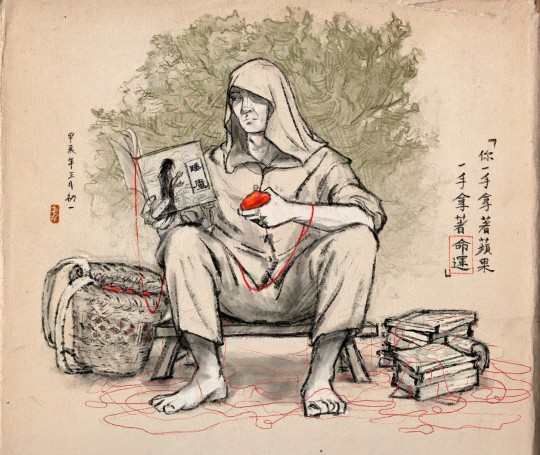
Destiny sits down in his garden.
The text on the right is a quote from the song 米店 by 張瑋瑋: 'You have an apple in one hand / and fate in the other.' The title on the cover of the small book is Sandman.
A couple notes:
The little book Destiny is holding is a 連環畫, a popular form of comic books in the Sinophone in the 20th century.
In case you're wondering why I didn't draw a chain: red thread of fate (I've taken the symbolism one step further of course. We're all connected to one another in some way. Who says only lovers can be tied together by a red string? And if the web of connections among all of us isn't destiny, I don't know what is.)
#the sandman#stuff i make#the sandman fanart#dream of the endless#(he is on the cover of the book)#destiny of the endless#destiny deserves a snack break
212 notes
·
View notes
Text
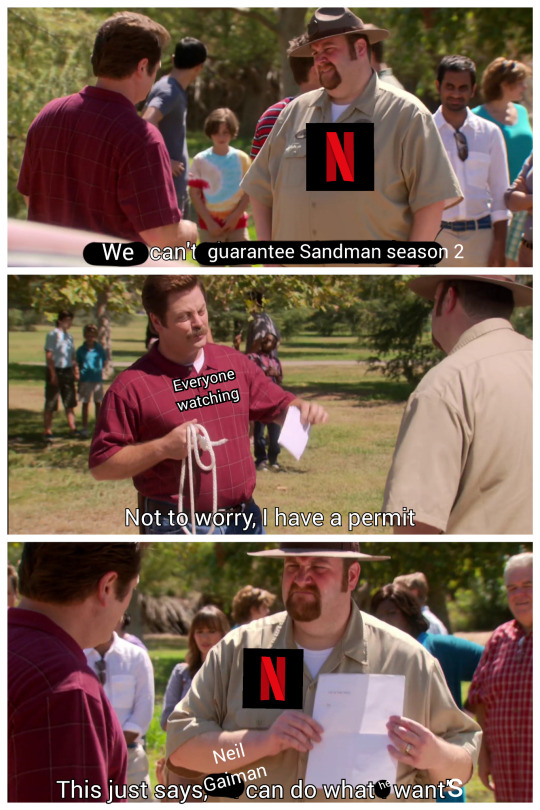
Blabla numbers blabla have to binge-watch blabla bullsh*t
#the sandman#it's so GOOD#to me this is THE story (the stories) to be told in rhis day and age and Dream is the perfect person to tell em#there never was and never will be anything like this show#the ugly the despicable the vile alongside the beautiful and touching of humanity#hey @Netflix u listening#the sandman netflix#dream of the endless#just watched the special ep and guess what#friggin brilliant#the whole show feels like a BOOK#like bedtime stories#it is amazing#sandman
3K notes
·
View notes
Text
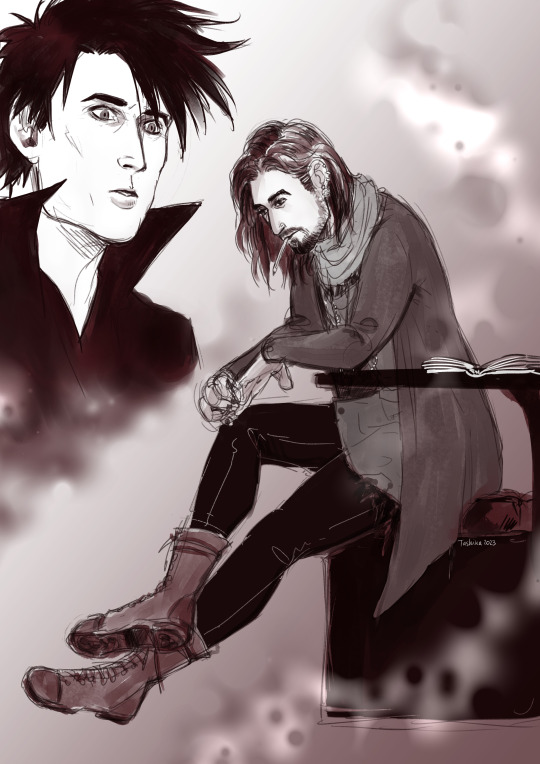
When Dream comes to the New Inn in search of Hob, he is surprised to find his friend looking...quite different from what he has come to expect from Hob Gadling.
#witch!Hob#he's contemplating a new spell#he also writes books about occultism and occasionally gives lectures as an expert on the history of paganism in England#dreamling#the sandman fanart#dream of the endless#hob gadling#teejaystumbles
344 notes
·
View notes
Text
Dream and How He Experiences Love
(Or: When the Unreal is at War with the Real, and Finally Understanding Unconditional Love Tightens the Noose Around Your Neck That Has Been There All Along)
And as always: Send me asks about everything Sandman-related!
Let me start this one with a few adjectives from the horse’s mouth (aka: Neil Gaiman said so 🤣) as to what Dream is actually like:
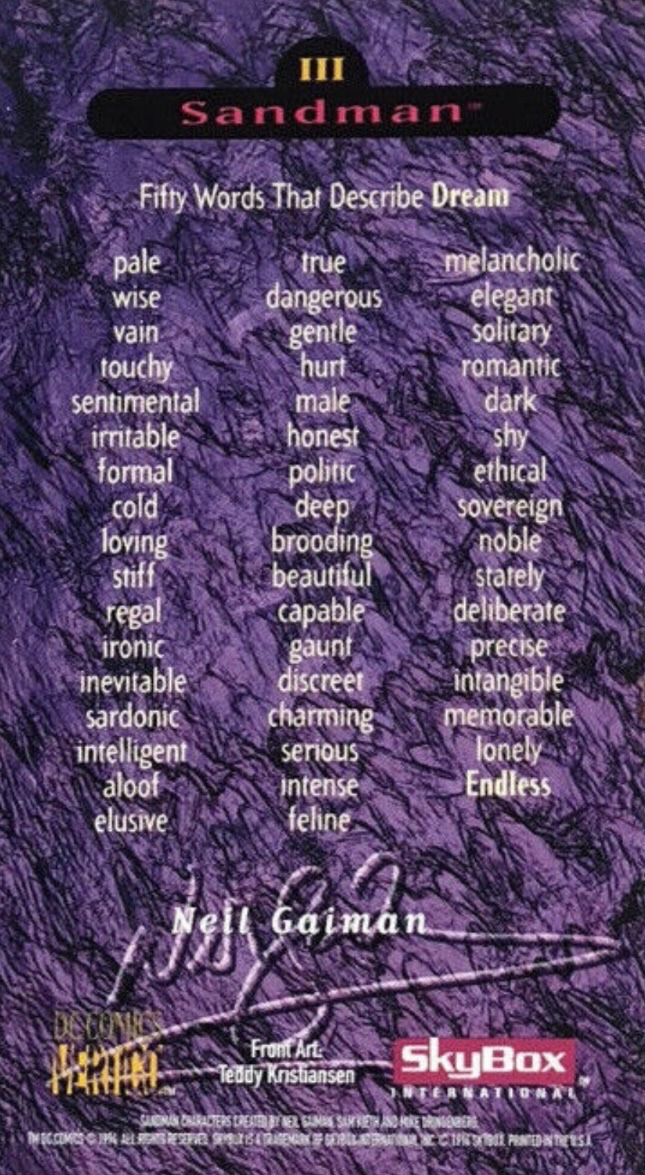
from: Vertigo Chase Card Set
So in short: This is probably the most accurate way to describe Dream in a nutshell, from the author himself, fully knowing that Murphy doesn’t lend himself well to be described in a nutshell.
And of course it’s absolutely fine if we want to head-canon him just being 5 out of those 50 (or none of them at all)—our stories are our own. At the end of the day, we went through a whole year of Tumblrfication (I might have made up that word), and getting back to the series will be tough. So is trying to align what the current prevalent perception of Dream is like in parts of the fandom, and what he is like in both comics and series (show and comics really aren’t that different where it matters, and I’ll die on that hill). I already worry about the fallout if I look at what happened with GO or OFMD, but that just as an aside.
Anyway, Dream in fandom spaces is often portrayed as either a pathetic wet cat who can’t get to grips with anything and constantly needs rescued in one way or another, or as a completely unfeeling arsehole incapable of relating to the human experience and being horrible all around. There are very few shades of grey in how some fans perceive him, when just the list of above adjectives shows us how complex he is as a character.
One thing that obviously comes up regularly are his relationships, be they romantic or platonic. So I just wanted to draw attention to the adjectives that relate strongly to the relational element in him (although they all apply in one way or another):
touchy, sentimental, cold, loving, [elusive], gentle, hurt, deep, intense, solitary, romantic, shy, intangible, lonely
Dream is the unreal. His way of loving relates very deeply to what stereotypical romantic love is: Romance and reality are a contradiction in terms—romanticism is dreaming because it is, at its very core, an idealised view. The intangible dream that comes back to bite us in the arse once reality sets in. And his flavour of love is the prototype of idealised and intangible (=romantic) and can never be anything else by his very nature.
And I’ve often thought that the way he experiences love is also a large part of why his existence is so difficult for him, and why he ultimately makes the choices he makes. Yes, he detests his function, but if he weren't so lonely (and weren't doomed to be so by his very purpose), he might find it easier to bear.
Let me look at, and draw parallels to, the 7 types of love as the Ancient Greeks perceived them [quick note about the image references: I would have loved to give more, but there is a limit. Also: Apologies I have no alt text for the comic panels at this point, I might add them at a later stage if I find the time]…
Eros
That’s both sexual and romantic love (to varying degrees), and it can be fleeting (like a dream) if not anchored in a less idealised view. So there’s your first cue—he totally experiences that kind of love.
The Ancient Greeks also thought it was a dangerous type of love, one that clouds our judgment and one that won’t last if not combined with some of the other types. And Dream himself knows this and probably relates (he detests his sibling Desire for “meddling”, after all). And yet, he is the intangible, the ungrounded, the unreal.
It’s all over every single one of his relationships we witness:
Killalla—“gifted” by Desire. We never get any cue as to what exactly they were up to, but it can be assumed desire, for whatever, played a large part in their relationship. Killalla makes no secret about it either (and is at the same time uncertain whether she truly loves him while being confused Dream might actually love her after what seems a very short time, at least in cosmic terms). Suffice it to say, he has a very idealised view of her and their relationship. Romantic idiocy at its best: He has literal stars in his eyes and is so grateful for Desire’s help he is basically kissing their boots in gratitude.
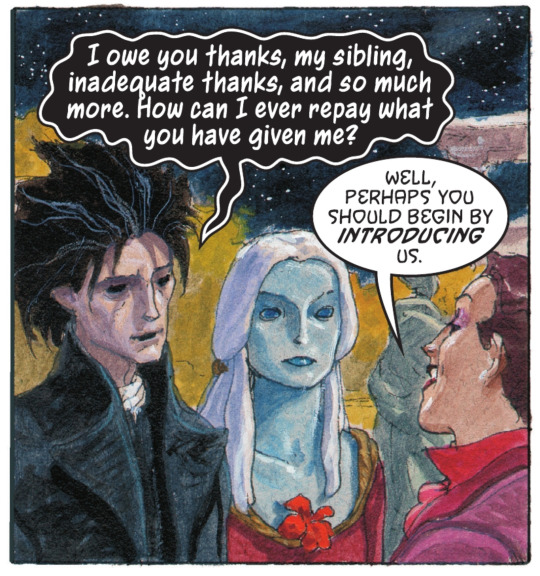
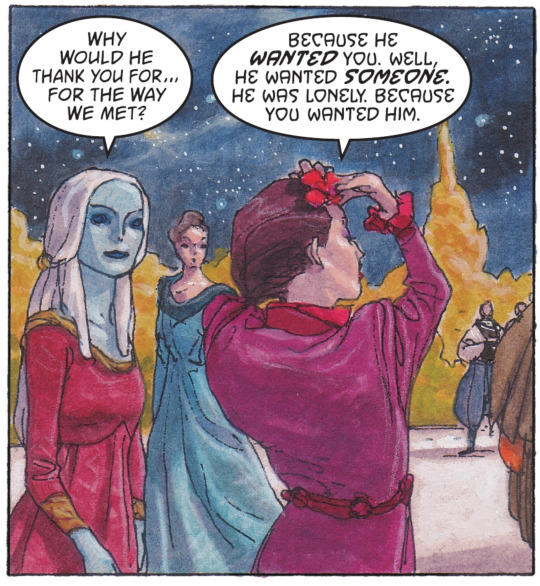
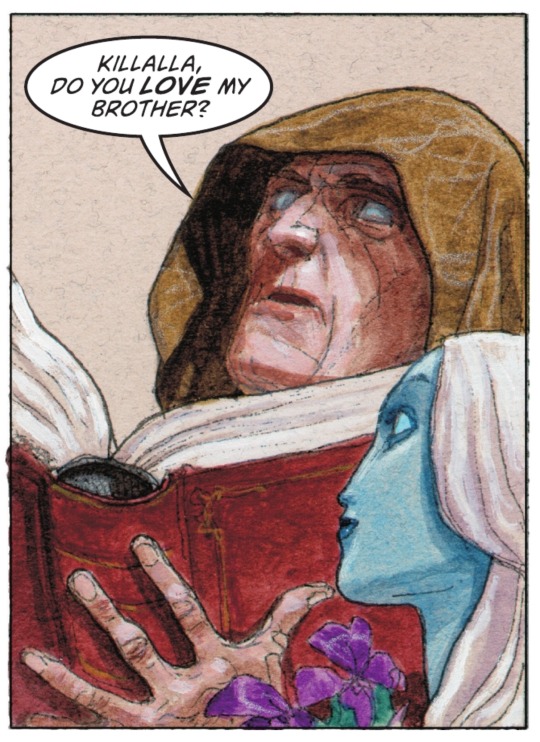
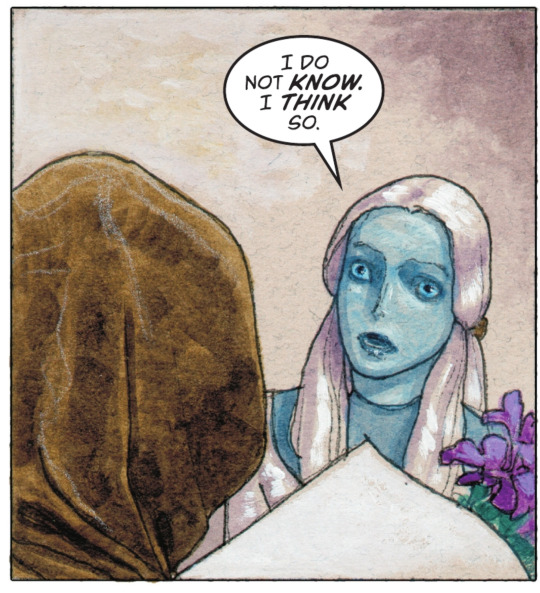
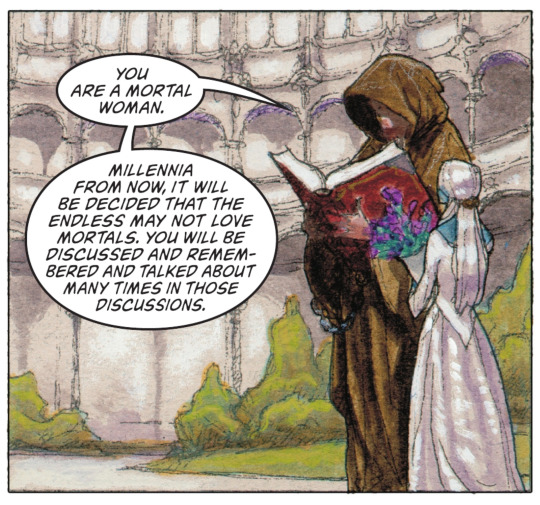
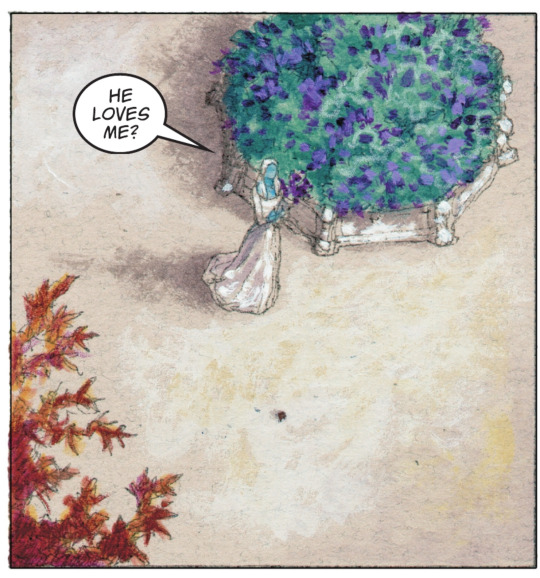
Alianora—again one of Desire’s gifts. And Dream tried, and I definitely think he was at least romantically (and physically) attracted to her (the art is very hard to interpret otherwise, neither is the context--she was gifted by Desire, after all). But this relationship is generally a tricky one because there is gratefulness and guilt n the mix, and that is sometimes a very unfortunate combination. He also couldn’t fully trust her because of his deep mistrust of D/desire. And lo and behold, of course the relationship soured when romantic and (potentially physical) attraction waned.
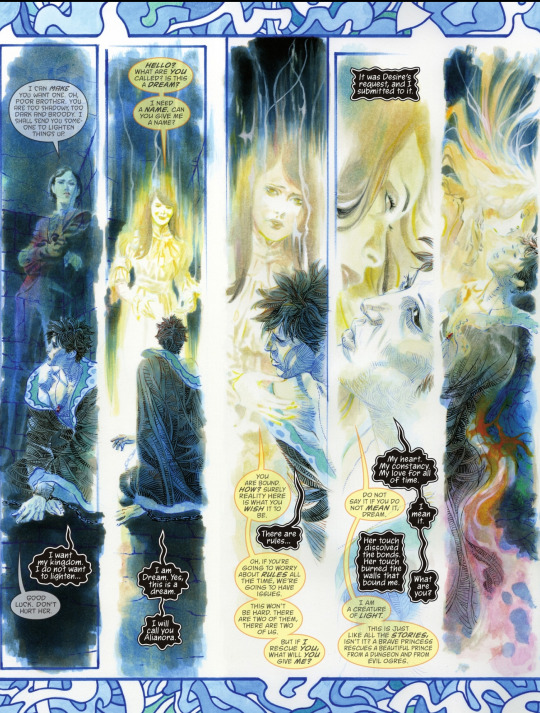
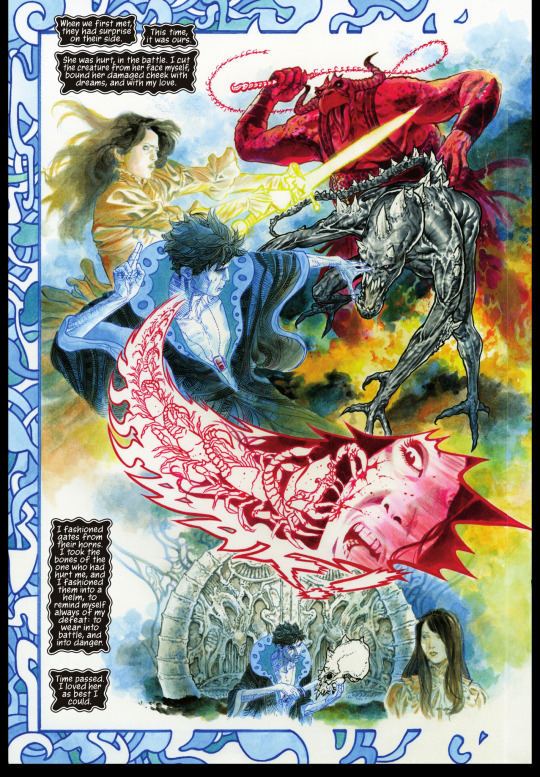

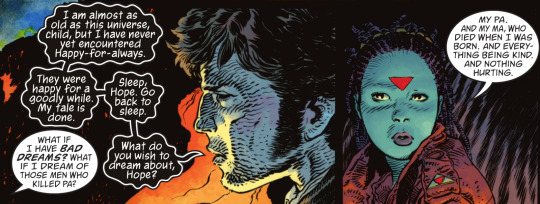
Nada—pursuing each other on and off, broadcasting sexy time all over the Dreaming because he's just so head over heels and literally bursting at the seams—need I say more? Yes, he does say to her that her body does not matter to him, which I 100% believe is true. He also says that he will love her as no mortal man can. But everything that transpires is still deeply informed by romantic attraction, because quite frankly: You don't feel love yet after you've barely met someone. It's again a deeply idealised view and that is something inherently romantic in tandem (in this case) with physical desire. Again, because D/desire was involved.
As to the particulars of Nada’s banishment to hell, and why Dream acted so out of character compared to his other failed relationships: You can find all of it here.
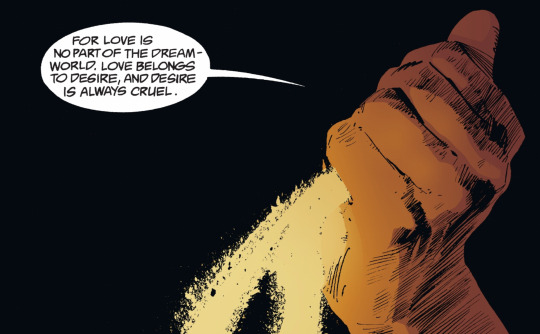
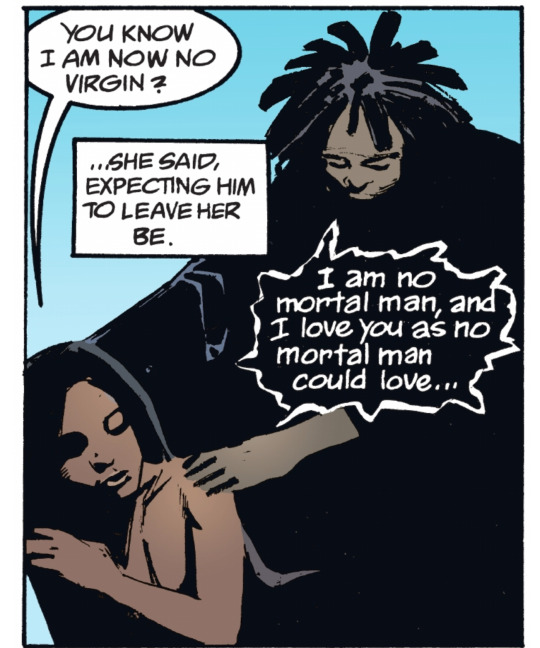
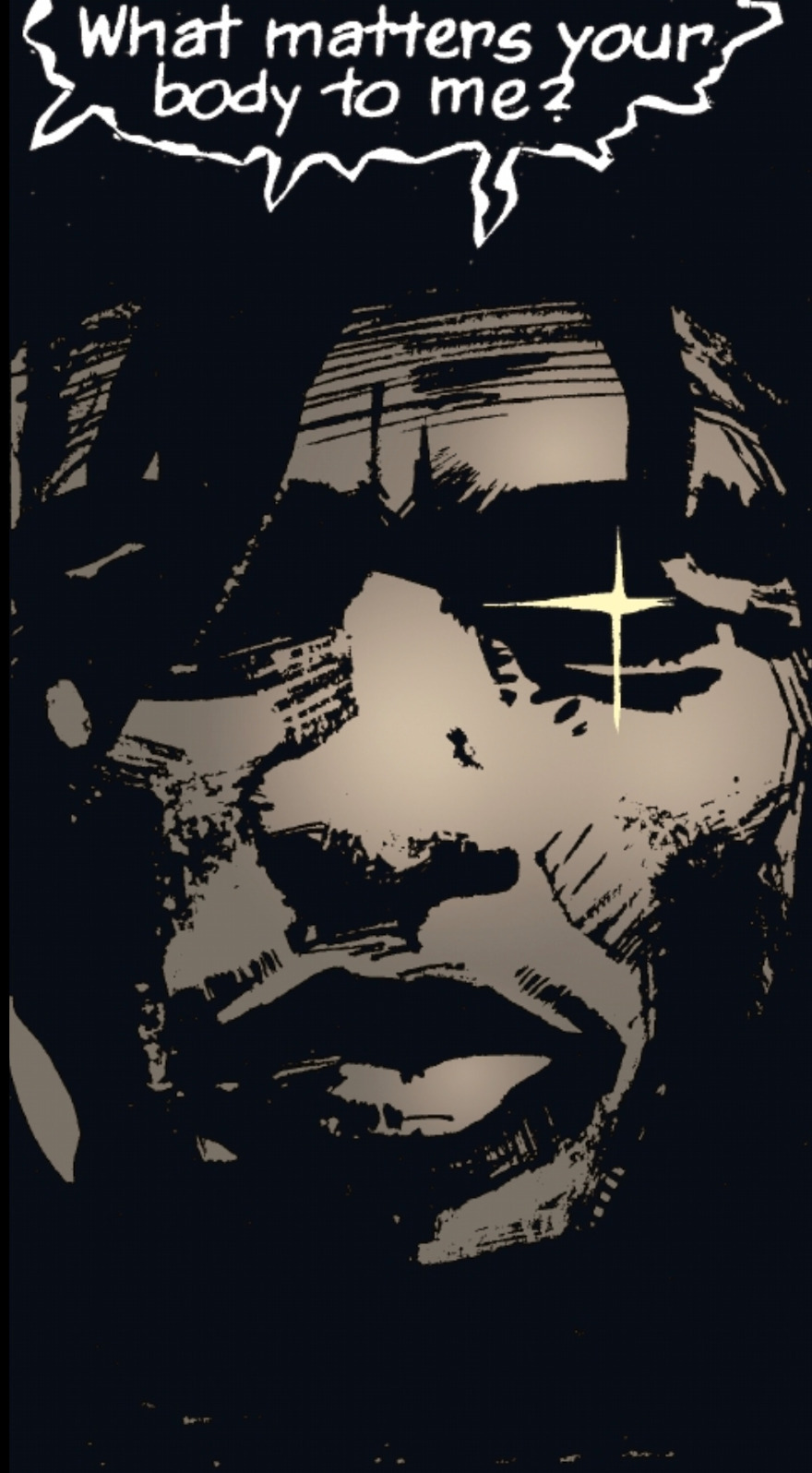
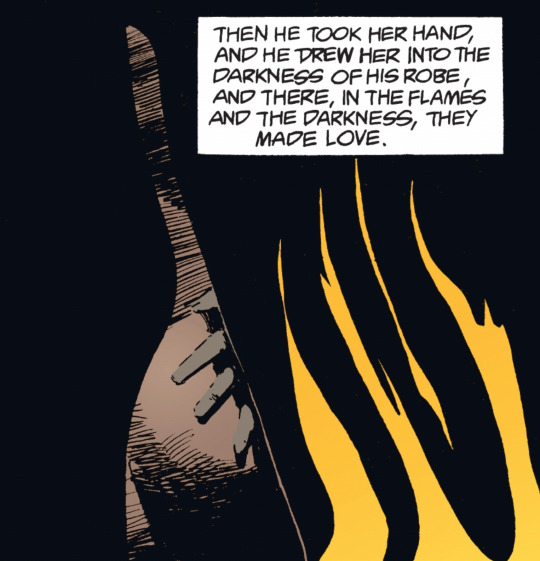
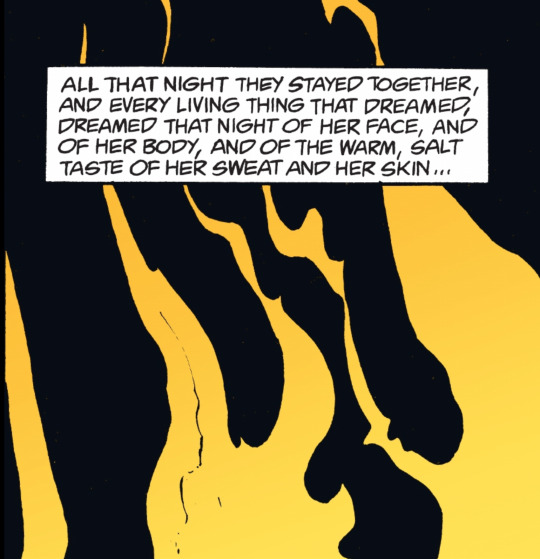
Calliope—read her speech at the Wake is all I’ll say. That is someone making romantic love so integral to their whole existence, I don’t even know where to start. He puts the world at her feet and makes sure she always comes first (quite literally) while they are still loved up…
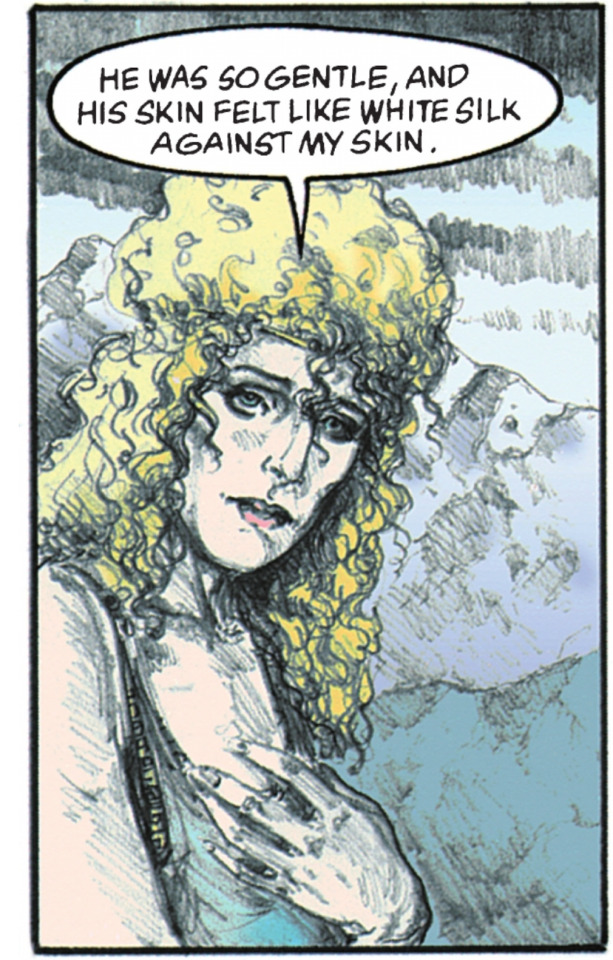
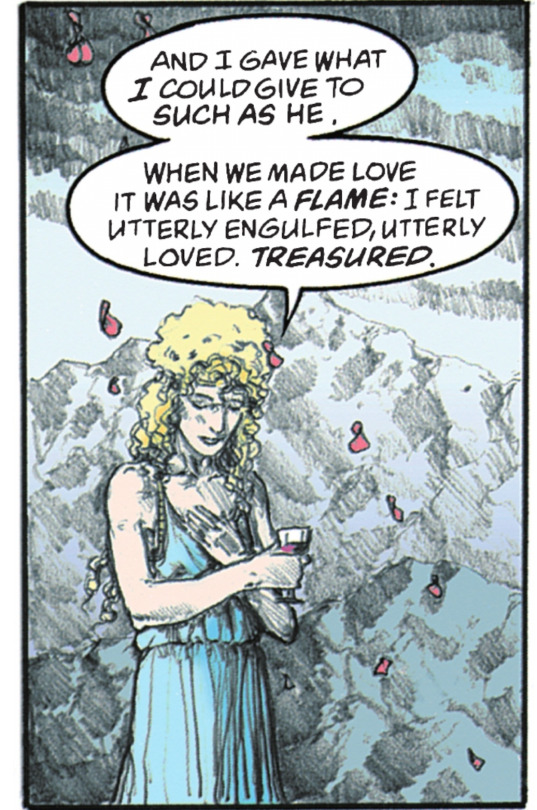
Thessaly—he's the romantic idiot (affectionately) in the rain with his coat billowing in the wind, and referring to her “weighing him dispassionately and finding him wanting”. It was only a handful of months--you don't feel true, stable love at that point. Again, it has the idealised view of romance (and potentially sexual desire) written all over it. He would have given her the world, just like he would have given the world to Nada and Calliope. That is the trope of every freaking romance novel, and that is exactly how he perceives love.
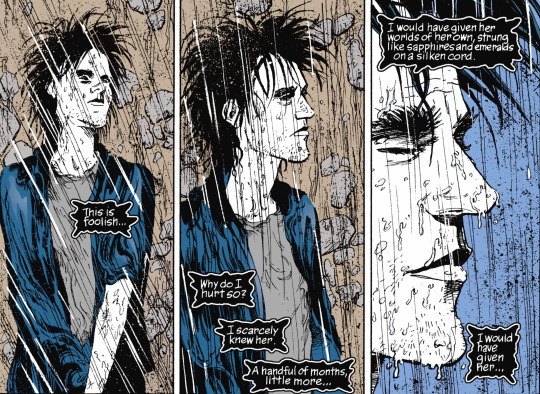
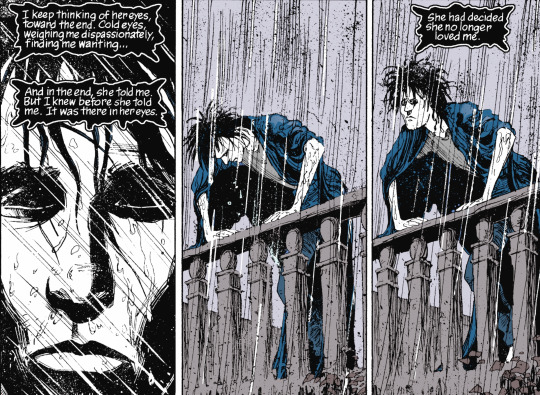
Titania—who knows, she keeps her mouth shut.
Ludus
I think he has a hard time to be flirtatious and playful (at least, we don't really see it. We never really see him during the courting stage, and what went down with Thessaly was hardly "flirtatious". `Then again, bickering like they did in A Game of You is electrifying to some, so who knows. She also said at his wake he was cautious and nervous). And if he comes across as flirtatious (there is a charming on that list of adjectives after all), it’s just because he is so deliberate in everything he does that he might just push someone’s (right) buttons, so to speak. But that’s not the same as “no strings attached”-love, because I honestly believe he’s incapable of experiencing love that way. There is no “casual” with him. He always stays attached to the people/women he once loved, even if the relationship sours. He still loves each and every single one of them, he never stops. But he also doesn’t in a way that’s sustainable, and it’s an unsolvable conflict due to what/who he is.
Philia
Most closely translated as friendship and affection. Platonic love, if you will. It is also a love between equals. He has a hard time with it and only slowly learns what it means through his relationship with Hob. Needless to say: The Ancient Greeks valued platonic love as one of the highest forms of love. Hence, I’m personally reluctant to turn it into something else/slant it towards romance, because that’s exactly what this part of the story is about: His relationship to Hob is important and grows/lasts because it is not romantic in the comics.
Storge
Unconditional love for family, especially children. Based on complete acceptance and potentially sacrifice. Doesn’t need to be reciprocated. You feel it, no matter what, and you act accordingly. And for Dream and Orpheus, that didn’t work until it did. Or, let’s rather say: I don’t want to assume he didn’t feel it. But he pushed it down in his hurt and pride (as did his son in his grief). No further comment, because that one hurts.
Agape
Altruistic, universal, all-encompassing. And that’s so deeply at the core of his being, and so central to his whole conflict that I don’t even know where to start. From not wanting to kill the first vortex (or Rose, for that matter), to telling John Dee he’s hurting the dreamers, and that being his main concern while he himself was writhing on the floor in agony, to “humanity I love you”, to a million other things. He cares so deeply, there is such a deep concern for sentient beings in their entirety that it’s quite literally impossible to call it anything other than love. And it’s also what plays a large part in his demise.
Pragma
Oh, here we go. I honestly believe he likes the idea of committed and long-lasting. And he’s trying. So very hard. Calliope is the best example. Alianora was another one, because it’s not like they broke up swiftly (hard to tell how long they lasted, but since she had stayed in the Dreaming too long to go anywhere else, it wouldn’t surprise me if we’re actually talking a very, very long time. He called it “a goodly while”, and considering how old he is, I doubt that equals only months, or even just a few years, especially since he is fully aware how short his relationship to Thessaly was). And he wanted to stay true to his promise. But he is who/what he is: the unreal. And as the personification of that, love both feels real for him but will also forever stay intangible. It’s heartbreaking really. Again, it has written the contradiction between romantic love (the ideal) and pragmatic love (the thing that is grounded in reality) written all over it.
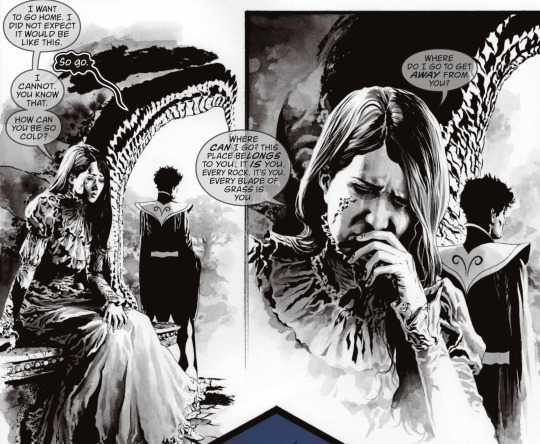
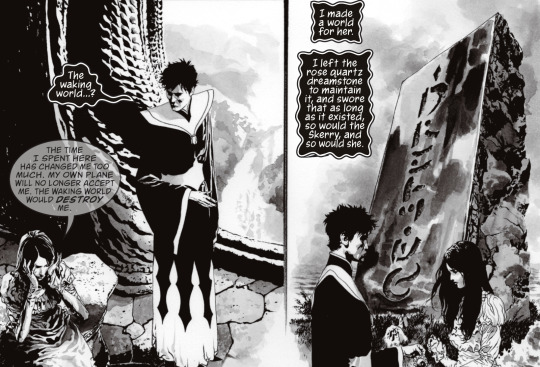
Philautia
And that’s the most heartbreaking one. He is incapable of self-love and full of self-loathing instead. The Ancient Greeks used to say that you can’t give what you don’t have. And it’s hard to feel compassion for the flaws we perceive in others if we don’t have that self-compassion for the exact same flaw in ourselves. And that one hurts in so many ways, from his not being able to forgive himself (which is mirrored in his relationship to Nada, who also couldn’t forgive herself—she didn’t need his forgiveness, she needed her own) to Orpheus being so much like him apart from one major difference: he’s mortal in spirit, and even immortality doesn’t change that. And Dream struggles with the part of his child that is so like him for a million reasons that would burst this meta at the seams, but again: it’s hard to love in others what we detest in ourselves, knowingly or unknowingly.
So in short: The particular flavours of love Dream feels (Eros, Agape, Philia growing slowly over time) and the ones he doesn’t (Ludus, Pragma, Philautia) are also at the very root of how the story goes.
And when he finally truly understands what Storge/unconditional love is--both in the way he reassesses his relationship to Nada but especially in how he finally submits to his love for Orpheus (with all that entails)--and when he allows it to become real, it’s what tightens the noose around his neck. But that noose has been around his neck loosely all along…
#the sandman#dream of the endless#morpheus#sandman#sandman meta#neil gaiman#the sandman meta#sandman bookclub#sandman book club#sandman spoilers#the sandman comics#hob gadling#the sandman netflix#nada sandman#orpheus sandman#calliope sandman#killalla of the glow#sandman alianora#desire of the endless#thessaly#morpheus and his doomed relationships#dream and how he feels love or doesn't
209 notes
·
View notes
Note
hob gadling being so goddamn normal compared to his anthropomorphic husband, in-laws, and husband's social circle that he circles right back around to being the more sus/shady one OR hob gadling keeps accidentally derailing dream's attempts to be King of Nightmares by horny vibes/going "joke's on you, i'm into it"/"promise?" to any and all threats
Hob isn't normal, is the thing. He's not. He never was. He was smouldering with strangeness and hunger long before his future sister-in-law took one look at him and decided he'd be good for her little brother.
He asked her, once, bit drunk, if that was why she chose him: if she'd heard him forswearing her in the White Horse and looked at him, peered into the contents of his soul, and thought: well, there's one at least as stubborn as my brother - maybe they'll be good for each other. She'd just smiled and waited for Hob to take another sip before saying, "Good? I just thought it would be interesting," and twinkled at him when he sputtered. Hob said older sisters were terrors, and they'd toasted to that.
Whether she'd intended or not, they were good for each other, him and Dream. It took them a little bit to realize, a small handful of centuries holding one another at arm's length for fear of what would be seen any closer. Then they'd crashed together anyways, and it had turned out they were matched not just in that bloody-minded stubbornness to keep a decent thing going, but also in all the intensity they'd tried to smother to do so, the roaring hunger and devotion and need; the both of them strange creatures capable of giving so much and greedy enough to take just as much in kind.
On the outside, though, others see Dream, his distance, his power, the thunder of his voice, and don't see it as the armour it is, the necessary carapace protecting the sort of tender feelings that could scorch the entire earth, because he is a vessel for human emotions that are strong enough to live on in stories and dreams, because he is, in that respect, - and Hob gets choked up about this, if he allows himself to think about it too much - fundamentally more human than him, than all of them, the embodiment of every fantasy and fear and tall tale of men, tending to them each night, taking no rest for himself.
On the outside, others see Hob, his banal humanness, and other humans assume the rest of him is the same, and so do most non-humans, except they're baffled by it, baffled by why he is Dream's husband. So he plays it up, because it's funny, and if they're too incurious or gullible to figure out what lays beneath, then that's alright, because his husband figured it out, and loves him for it, and that's all he needs.
Dream didn't understand at first why Hob acted extra human whenever they mingled with other capital-e Entities and inhuman sorts, but now he finds it so amusing as well that Hob wonders how the gig isn't up from the moment anyone sees his twitching smirk. His husband has a terrible poker face, Hob thinks.
He's much better at pretending. In fact, he's so good at performing the petty normality expected of him that it goes full circle and becomes, somehow, magnetically strange to all the fantastical creatures in his husband's social circle.
He had not realized the heady effect of normal human upon non-humans until the time he had gone to a Samhain 'do in the Underhill, in his formal role as Prince Consort to the Lord Morpheus, Dream of the Endless, first of his name, et cetera, and, rather comfortable with those sort of events by then, which were really not that dissimilar to interdepartmental faculty parties, with all the posturing and alcohol, only far better outfits, had, a bit soused on the fantastic elphin mead, accidentally started talking with a member of the faerie delegation about the football tables. At first he thought he'd committed a faux pas when the faerie just stared at him, slack-jawed, but later that night, he'd found himself surrounded by a cluster of wide-eyed dryads and undine and fae, gratifyingly holding court on why Billy Wright had been such a shite Arsenal manager. Apparently, it was the highlight of the evening.
It also helps grease the wheels of immortal statecraft, which Hob thinks of as something of a secondary benefit to making his husband smile. He would be a fierce bodyguard and soldier for Dream, in a heartbeat, he would curry favour on his behalf with pretty words and eager gladhanding, but what works out best, he's realized, is when important folk approach them to talk shop with Dream, to head it off with warm conversation about things like Tube construction, ABBA, and sausage rolls, until they look thoroughly disconcerted, before gracefully handing them off to his husband.
Whenever the occasion allows it, he'll skip on the finery too (another thing, he thinks, that he only cares about his husband seeing). Once, a baku ambassador, himself arrayed in glorious golden robes that matched his sharp gilt claws, had been so baffled by Hob's appearance on the arm of Dream, in his ratty old jeans and a United jersey he got as a gag gift once (and, on principle, refuses to wear in the Waking) that the chimera had absently agreed with Dream's suggestion for revised quotas on devouring nightmares.
Dream had been so delighted by that victory that he'd pressed Hob up against the front door of their flat in Islington, the moment they got back in, and laid kisses all over the hideous jersey, murmuring that Hob was a fearsome diplomat, and Hob had laughed and said he was only a distraction, then let Dream drag him to the bedroom anyways to thank him for his contribution.
Some see what's underneath, of course, and Hob's just as glad for that too.
The second time they'd had dinner with Crowley and Aziraphale, well past the food and making excellent headway on the rest of the wine, Dream had been called away on urgent business. Hob thought the night would end there, but the moment Dream left, Crowley had leveled an unsober finger of accusation at Hob and said, "Don't think I can't tell what you're doing."
Hob hadn't needed to try and look confused, but then Crowley leaned in and said, conspiratorially and only accidentally hissing a little, "This 'regular bloke' thing, but you're worssse than him, aren't you? Bet you are. Bet anything," and Aziraphale had genuinely emitted a tiny gasp of affront on Hob's behalf, and Hob was too busy laughing to say that he wasn't wrong at all, while Crowley gleefully swiveled around and said "I told you so, angel. S'obvious. Humansss. Not a normal one among 'em."
It was a lovely thing to say, actually, and all too easy for Hob to forget sometimes, being a particularly abnormal human leading a particularly abnormal life. But Crowley knew what he was talking about. He spent far more time with humanity compared to most of the inhuman lot. When Hob had made him promise to keep his secret from the rest of them - humanity's secret, really - and explained why, Crowley had laughed and laughed and laughed. He thinks it's the moment they became proper friends.
Hob isn't normal, is the thing.
But it's fun to don it like ceremonial garb and be an ambassador of humanity twice over: in truth and performance both. It's fun to be exactly what's expected and still disconcert.
And most of all, it's fun to go back home with his husband, to their terribly normal human flat, and curl up together in their terribly normal human bed, and watch Dream's face flush with pride or amusement as he debriefs Hob on what chaos he's wrought this time, intentionally or otherwise, with his terribly normal human presence, and Hob just laughs, then smiles until his face hurts, because Dream is his husband, wholly apart from humanity and still the most human creature Hob has met, and he knows all the ways that Hob feels like both, too.
#dreamling#the sandman#asks#hob gadling#dream of the endless#my writing#prompt fill#he IS normal in a lot of ways too but you know unreliable narrator#weaponizing ur banality against the eldritch and fantastical#mostly bc ur husband finds it funny#new headcanon: crowley and hob are absolutely best mates#little feral creatures who understand the horrors and delights of humankind alike#hedonists who love modern inventions and distrust large bureaucracies#whose luddite partners are very lovely but fundamentally would rather be in a library reading old books
2K notes
·
View notes
Text
Morpheus • The Lord of Dreams
(digital fanart based on Netflix show "The Sandman")

I recently watched "The Sandman" from Netflix and caught an overdose of another character from the category "my personal fetish" ❤️🔥 Of course, I assumed that I would like Morpheus, but so much 🔥 However, it's not surprising. Gothic-aesthetic men with a sculpted face and dressed in a black cloak have always been a separate kind of my love. And also here is my favorite atmosphere of Dreams and Mysticism. So, +1 to the collection of fandoms and definitely +1 to the collection of TOP male characters.
Of course, I have a couple of objective complaints about the show, but if in general – I was in love ❤️ The plot of the series corresponds to the comic almost verbatim (jeez, how cool!). And for me, as a lover of aesthetics and beautiful visuals, the darkly atmospheric show has become an inspiring addition to the graphic novel. Although some moments are too smoothed out. The original source is still tougher and much mature 😅
BUT! The Lord of Dreams in this adaptation is amazing! He conquered me 🖤😍 So I'm waiting for the Season 2 and drawing ✍🏻
BUY PRINT
@netflix @tomsturridge-blog
#the Sandman#the Sandman Netflix#the Sandman Neil Gaiman#Morpheus#Dream of the Endless#Dream#the Sandman fanart#the Sandman fandom#King of Dreams#Dream (the Sandman)#Netflix fanart#Netflix series#series characters#series fanart#book characters#dark fantasy#mystic aesthetic#dark aesthetic#Tom Sturbridge#Tom Sturridge fanart#dreamling#galaxy art#galaxy aesthetic#digital realism#digital painting#digital illustration#artist support#artist on instagram#artists on tumblr
1K notes
·
View notes
Text


just a little book cover for @moorishflower 's wonderful fic Make perfect the present
#my art#fishfingersandscarves#the sandman#the sandman netflix#dreamling#dream/hob#dream of the endless#dream (the sandman)#hob gadling#robert gadling#moorishflower#fic rec#illustration#book cover
953 notes
·
View notes
Text
So Hob has lived all that time without 'ever' coming across any other supernatural beings... I wonder why? 😏

2K notes
·
View notes
Text
Longing for a fic where Hob reads The Little Prince to Dream. For whatever reason, I don’t know.
something something Hob thinks of it as a story about the joy of living and experiencing new things. Maybe he’s also thinking a little of the fox. If you tame me, then we shall need each other. You become responsible forever for what you have tamed.
But he realizes halfway through that he fucked up. He forgot the ending. He’ll have to read the ending, there’s no getting around it.
something something Dream listening to the Little Prince planning with the serpent to end his human body’s life so he can leave and go home.
and of course there comes the inevitable day when Dream is standing to take his leave like he’s done so many times before, but it feels different. Hob can tell. And Dream says, “Nothing is wrong…I must go. I have procrastinated long enough.”
But Hob can hear, in the back of his mind— Do not come…you understand…it is too far…I cannot carry this with me…it shall look as if I was suffering…do not come to see that…it is not worth the trouble…
The next morning, though. He wakes to a knock on the door, and finds Dream. Standing there, looking looking down at himself in amazement. Telling him, “This body, it really isn’t as heavy as all that, is it?”
The things he left behind to be free were so much heavier.
#dreamling#the sandman netflix#hob gadling#dream of the endless#retired!dream au#The Little Prince#I have Feelings about this book ok?#sorry had to get that out of my system
123 notes
·
View notes
Text
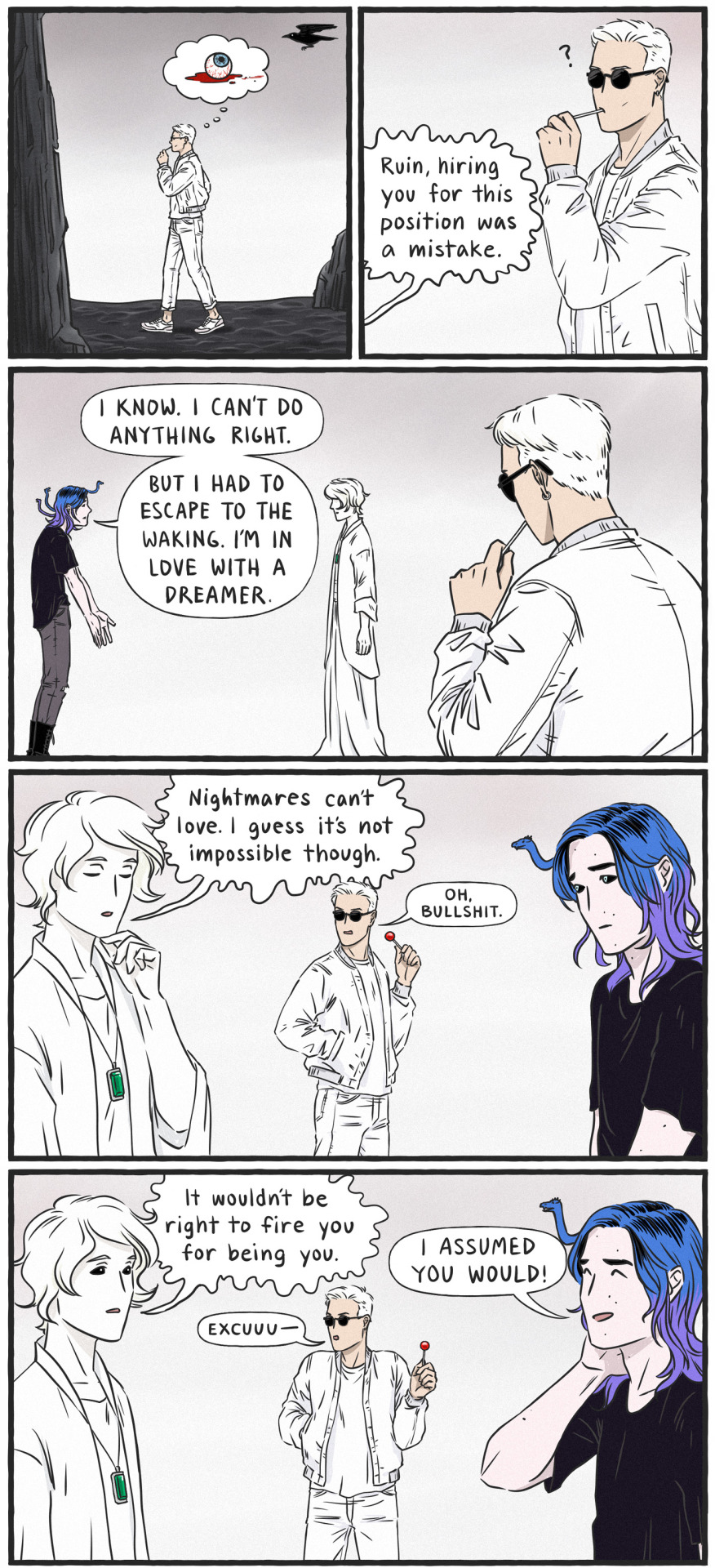
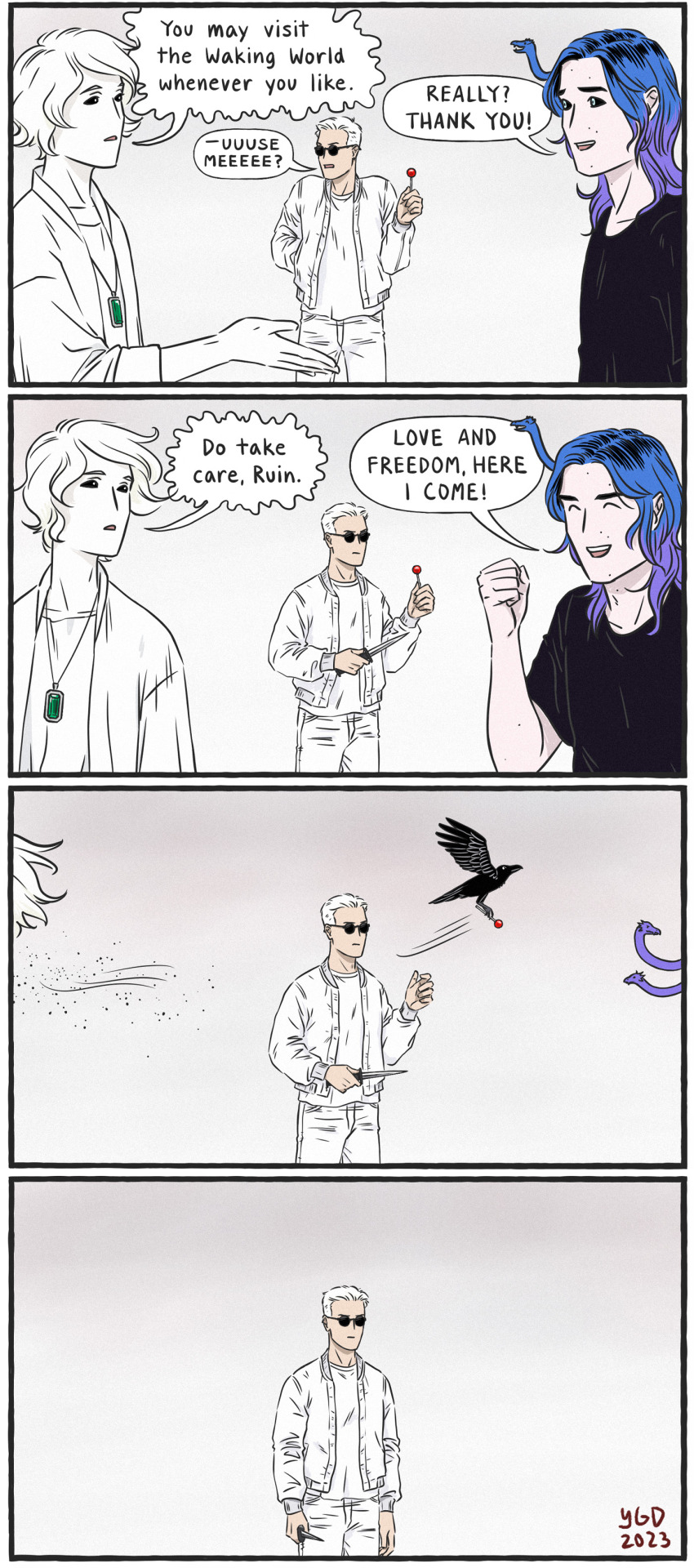
dream: "lucienne, please call IT, the corinthian appears to have stopped working."
lucienne: "...you're IT."
#i don't draw for months and i draw frigging ruin?#i just needed to get this out of my system#the corinthian#the sandman silliness#daniel hall#don't feel bad for him he's terrible#one day i'll treat him to a nice comic tho#the dreaming: waking hours#comic book spoilers#i actually remembered to give daniel his jizsplat speech bubble style#dreaming workplace au#matthew#my comic
284 notes
·
View notes